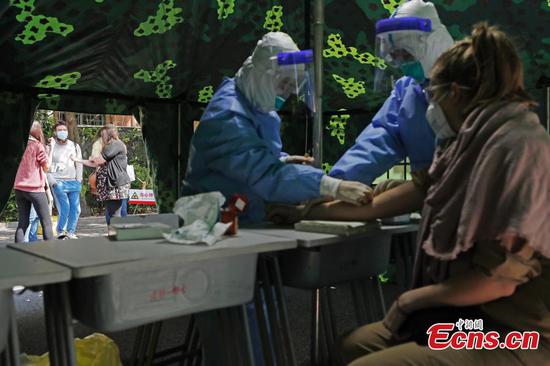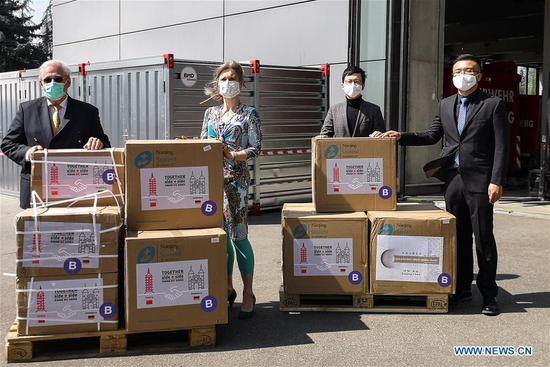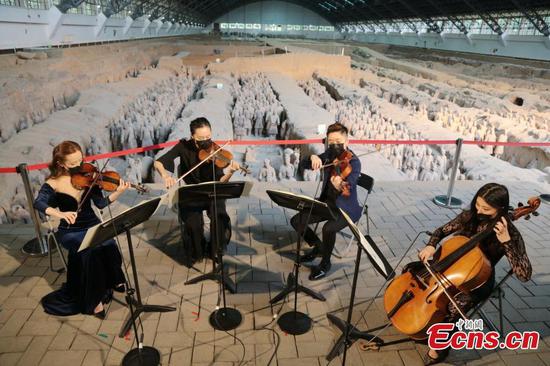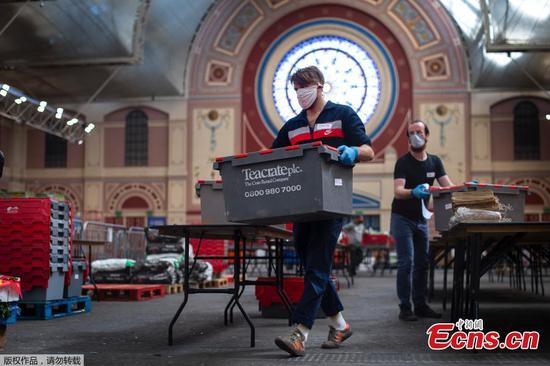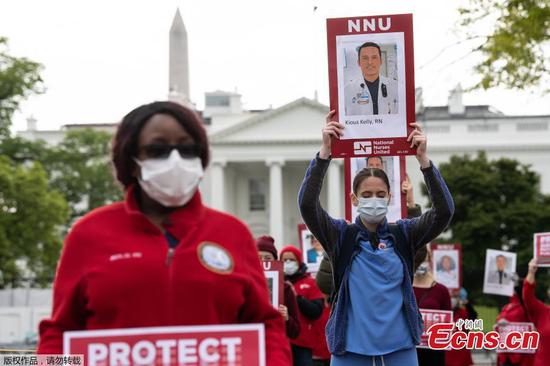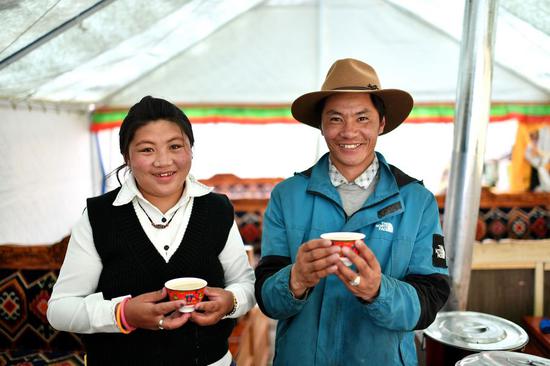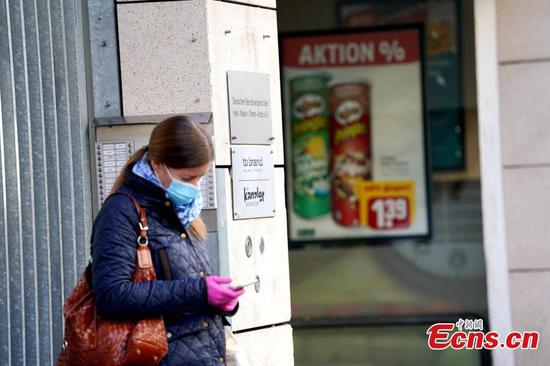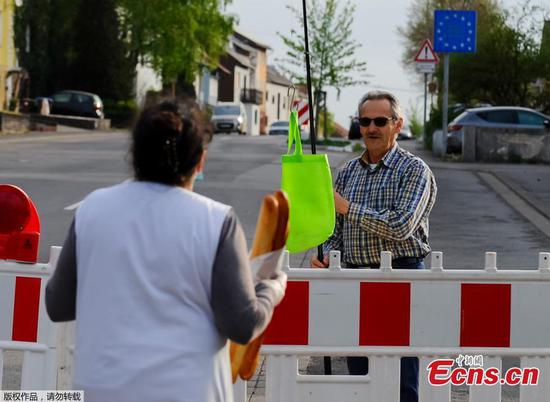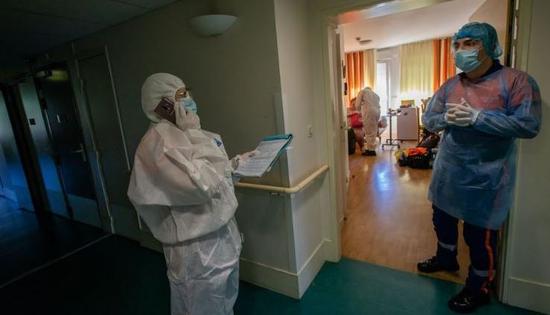
French Civil Protection volunteers arrive at the room of a COVID-19 patient at an EHPAD (Housing Establishment for Dependant Elderly People) in Epinay sur Seine near Paris, France, on April 22, 2020. (Photo by Aurelien Morissard/Xinhua)
Hans Kluge, the World Health Organization (WHO) regional director for Europe, said on Thursday that a "deeply concerning picture" was emerging from the coronavirus pandemic as up to half of the deaths in Europe occurred in long-term care facilities.
During a weekly press conference on COVID-19 broadcast online from Copenhagen, Kluge confirmed that over 1.2 million people had been infected with COVID-19 in the European region, almost 50 percent of the global total, and 110,000 of them had died in the past 100 days.
Kluge also revealed that half of all European COVID-19-related deaths occurred among residents of long-term care facilities. It's an "unimaginable human tragedy," he said.
Kluge stressed that the pandemic had "shone a spotlight on the overlooked and undervalued corners of our society."
"The way that such care facilities operate, how residents receive care - is providing pathways for the virus to spread," he said.
"We must step up," Kluge said, arguing that "we have a clear investment case for setting up integrated, person-centered long-term care systems in each country."
To this end, he said that care workers -- "the unsung heroes of this pandemic" -- must be empowered by ensuring that they have personal protective equipment (PPE), appropriate remuneration, proper training and "suitable levels of resources and staffing."
He stressed an "immediate and urgent need" to change the way long-term care facilities operate, and a need to isolate all suspected cases immediately.
According to Kluge, "quality, resourced, strong and sustainable care systems" must be built that prioritize people's needs.
"We must bring together physicians, nurses, pharmacists, social and other health care professionals, care workers, and above all, care home residents themselves, in decision-making and care provision," said Kluge.
According to Kluge, these measures would not only help curtail the spread of the virus but ultimately allow for the managed opening of locked-down care homes to families and visitors.
"Complacency could be our worst enemy at this time ... Any steps to ease social and physical distancing measures must be carefully considered and gradually undertaken," he stressed. Enditem










